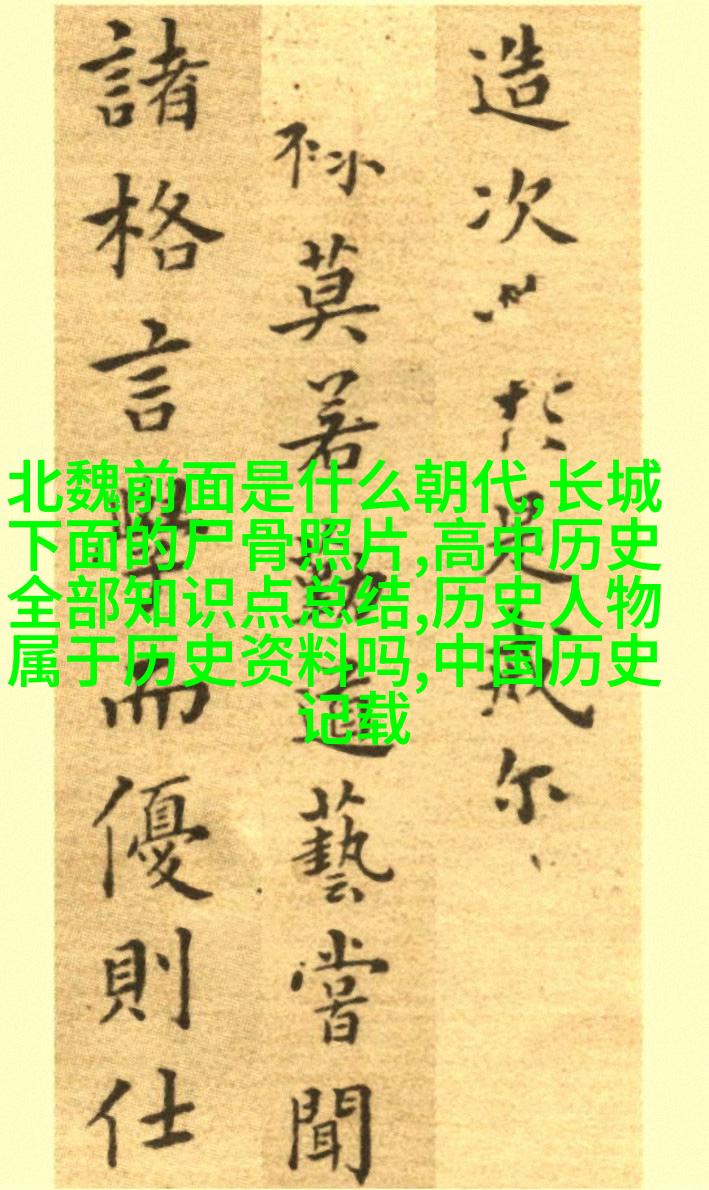在中国历史上,西汉开疆扩土是指从公元前140年到公元前87年间,由汉武帝刘荣发起的一系列军事征服和外交活动,这些活动不仅巩固了汉朝的统治,也为后世留下了宝贵的历史遗产。以下,我们将详细分析这段时期中汉武帝采取的一系列战略措施,以及这些措施对中国乃至世界历史产生的深远影响。

一、背景与目的
在刘邦建立大秦帝国之后,随着时间推移,内部矛盾日益尖锐,大秦帝国逐渐分裂成楚国、燕国等诸侯国。为了恢复中央集权,并进一步巩固皇权,刘荣继位后,便开始了一系列内政改革和外部扩张政策,以此确保国家稳定发展。

二、军事征服
击破匈奴:匈奴一直是华夏文明最大的威胁之一。为了解决边境安全问题,改善民族关系以及获取更多资源,为此进行战争,对于当时来说是一个必要而合理的选择。
南征北伐:南征以平定南方各小王国,如楚地之役;北伐则主要针对河套地区及蒙古等游牧民族,以消除潜在威胁并打开通往西域的大门。

西域进攻:通过多次战役,最终控制了丝绸之路上的关键要塞,使得中亚地区成为“天子脚下”,增强了经济文化交流。
三、外交手段
和亲婚姻:通过结盟与和亲来瓦解其他势力之间的联盟,从而削弱他们对自己构成威胁。
文化传播:利用儒家思想作为一种软实力,将文化和价值观融入周边各族群中,从而提高自身的地位和影响力。

经济合作:通过贸易与商业合作,加强与周边国家的地缘政治联系,同时也促进了国内经济发展。
四、长远影响
促进科技发展:由于需要应对战争需求,不断加强武器装备技术研究,有助于推动兵器制造技艺向前发展,如铁马车轮等新型武器出现,为后世提供新的科技创造点源泉。
增强中央集权:成功完成一系列军事征服使得中央政府更加巩固,无论是在行政管理还是文化教育方面,都有显著提升,让整个社会趋向更为统一规范。

形成了封建制度基石: 在历经战乱后的稳定局面下,更深刻地体现出封建阶级结构,其中士农工商相互依存形成一个整体,为后来的封建社会奠定基础。
总结:
Han Wu Di's "Western Han Expansion" strategy, which lasted from 140 BCE to 87 BCE, was a series of military conquests and diplomatic activities initiated by Emperor Liu Rong (also known as Han Wu Di) in order to consolidate the rule of the Western Han Dynasty and expand its territorial influence.
This period saw numerous significant events that played a crucial role in shaping China's history and had far-reaching impacts on world history as well.
In conclusion, it can be seen that the strategic measures taken during this period were instrumental in solidifying central authority, promoting technological advancements, fostering cultural exchange with neighboring countries while maintaining economic cooperation with them.
The successful completion of these endeavors not only helped establish the foundations for future expansion but also contributed significantly towards establishing the framework for later feudal systems within Chinese society.
The legacy of Han Wu Di's reign remains an important part of Chinese historical knowledge today, offering valuable insights into how effective leadership can shape both domestic policies and foreign affairs to ensure long-term stability and prosperity for a nation at large.
Moreover, it highlights China's rich cultural heritage where diplomacy often complemented military prowess as tools for securing borders while facilitating trade along ancient silk roads that connected distant lands across Asia along with Europe through Eurasia landmasses connecting East & West continents together like never before till then or even after!



